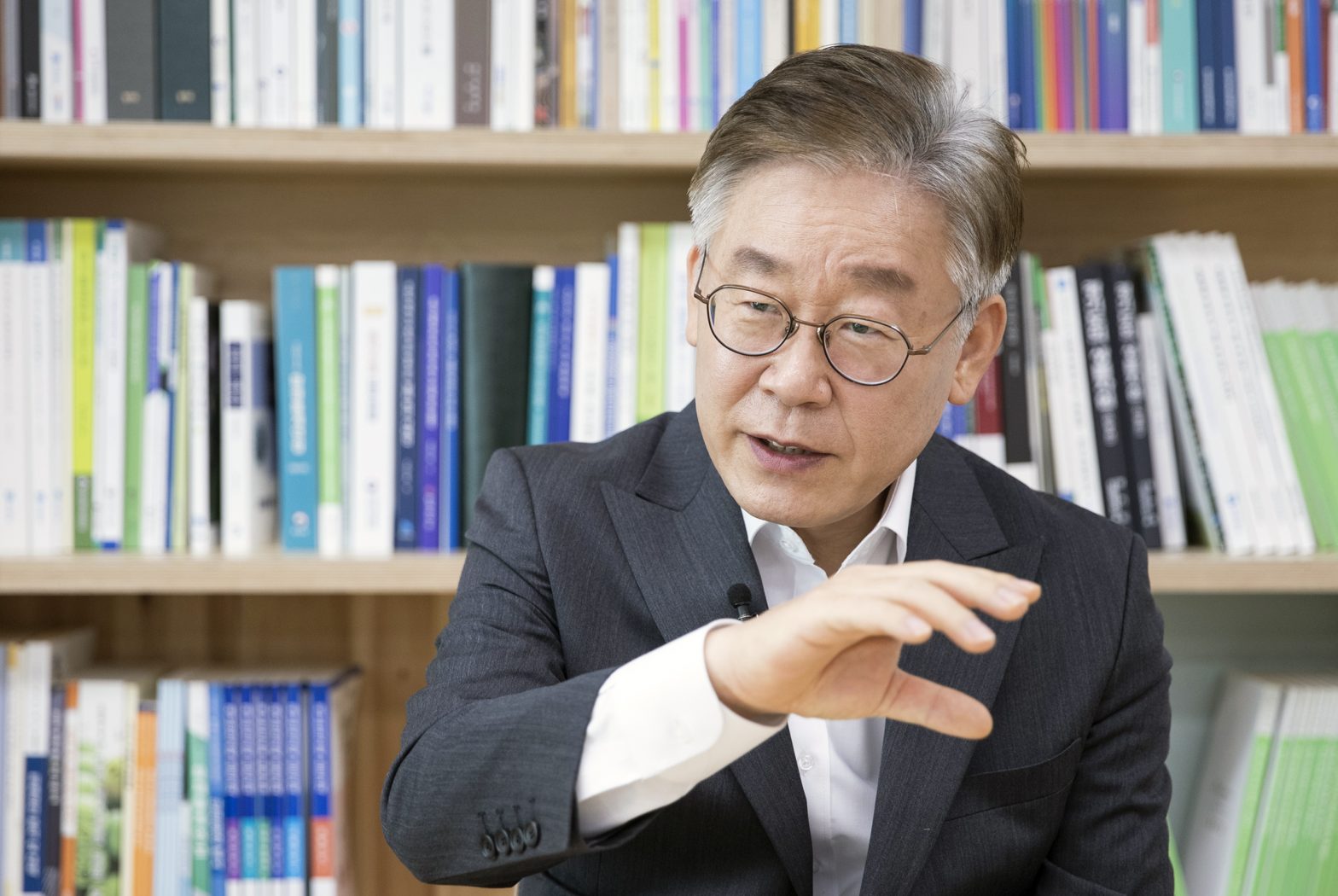
Photo: Image: Gyeonggi Province Governor Lee Jaemyung
Korean local government to pilot basic income
22 March 2021
by Sarah Wray
Gyeonggi Province is set to launch a publicly funded trial of basic income for rural residents, with a view to providing evidence for local and national expansion. It is understood to be the first universal basic income (UBI) experiment of its type in South Korea.
The initiative, led by Gyeonggi Province Governor Lee Jaemyung, aims to address challenges such as an ageing society, declining population, job losses and falls in income, as well as the broader threat of job automation.
Dong-kwang Ahn, a spokesperson for Gyeonggi Provincial Government, told Cities Today: “We deem the sustainability crisis of rural areas to be comparable to the national problem that is expected to emerge with the Fourth Industrial Revolution.”
The details of the pilot are still being finalised but by the second half of this year, between 3,000 and 7,000 rural Gyeonggi residents will begin receiving a payment of between KRW 100,000 (US$89) and KRW 500,000 (US$443) per month. The installments will last for at least two years, regardless of the recipients’ income, assets or employment status. Data will be collected and compared to that of a control group living in a similar area. The pilot will study the impact of the basic income on psychological wellbeing, the economy, employment and inequality.
In a bid to stimulate the local economy, the payments will be provided in a form of regional currency, rather than cash, with a set period in which the funds must be used.
“We believe that this community-level rural basic income social experiment will provide an opportunity to form a national consensus on basic income, advancing it to the national level,” Ahn said.
International trend
The programme highlights the growing international interest in guaranteed income schemes in the wake of the COVID-19 pandemic and other societal shifts. As many as 25 US cities plan to launch guaranteed income pilots this year, inspired by the Stockton Economic Empowerment Demonstration (SEED), which recently released positive preliminary results. However, these programmes are mainly on a smaller scale, privately funded and constrained to low-income residents.
Gyeonggi Province, which is the most populous region in South Korea, has committed KRW 2.7 billion (US$2.4 million) for the pilot and new legislation is underway to support it.
“Unlike cases in other countries, Gyeonggi Province is considering policies with sustainability in mind…rather than one-time experiments through donation or charity or unstable experiments that do not guarantee regularity,” Ahn said.
The initiative builds on existing programmes in the province. Under Gyeonggi’s Youth Basic Income programme, all 24-year-old residents receive KRW 250,000 every quarter, totalling KRW 1 million over one year. The policy was launched in 2016 when Governor Lee was Mayor of Seongnam City and has since been expanded throughout the whole province.
Ahn said recipients have shown “increased levels of social interest, such as greater satisfaction and positivity in life as well as more favourable views of the role of local government.”
In addition, the Gyeonggi Provincial Government made two rounds of COVID-19 relief payments via local currency to residents and said that through this, “the economic and income distribution effects of basic income have been affirmed”.
Ahn said: “There is an apparent limitation in determining the effectiveness of universal basic income based only on the examples given above or as one-time payments. So, we have designed an experiment to pinpoint the changes that the basic income policy will bring, as well as problems and complementary aspects, before pursuing a universal basic income policy in the future.”
“The results of this experiment will demonstrate whether basic income is a fleeting issue or a means by which to solve problems such as future income inequality,” he added.
Scepticism
UBI has plenty of detractors, though, many of who question both the premise and its practicality.
“What proponents of basic income overlook is that individuals need money and public services. And the state must provide those services. But they’ll collapse if UBI is adopted,” Woo Seok-jin, economic professor at Seoul’s Myongji University told Voice of America earlier this month.
He argued that while he is in favour of more targeted government assistance programmes, de-linking employment and income is too drastic.
“Pre-empting future risks is good, but changing the system because of a future that hasn’t even arrived yet is just not realistic,” he is quoted as saying.







